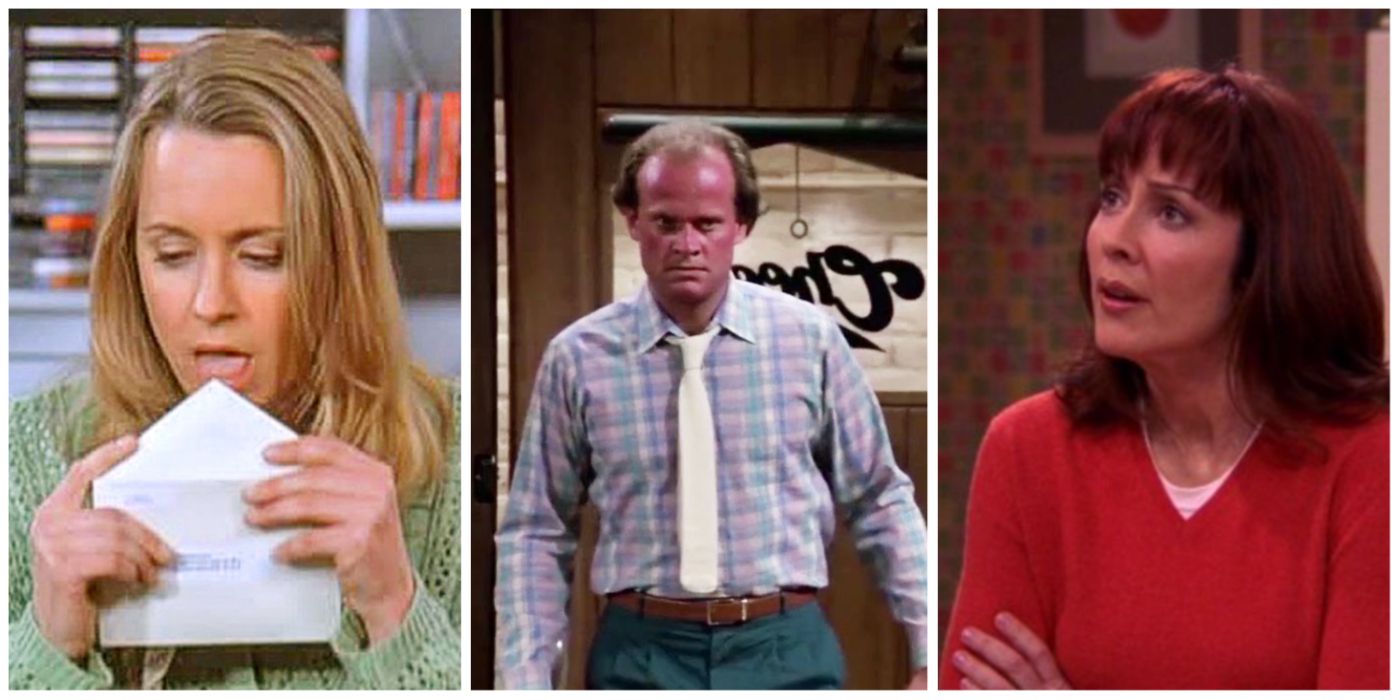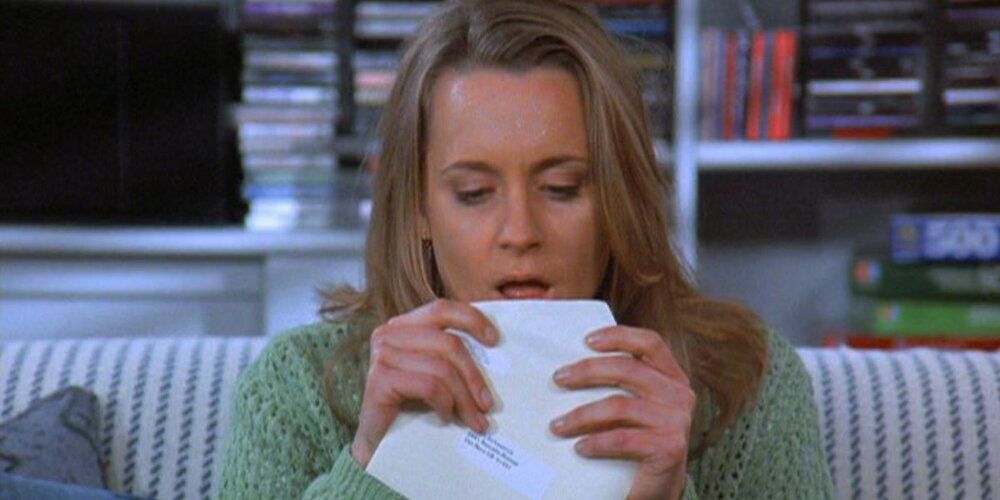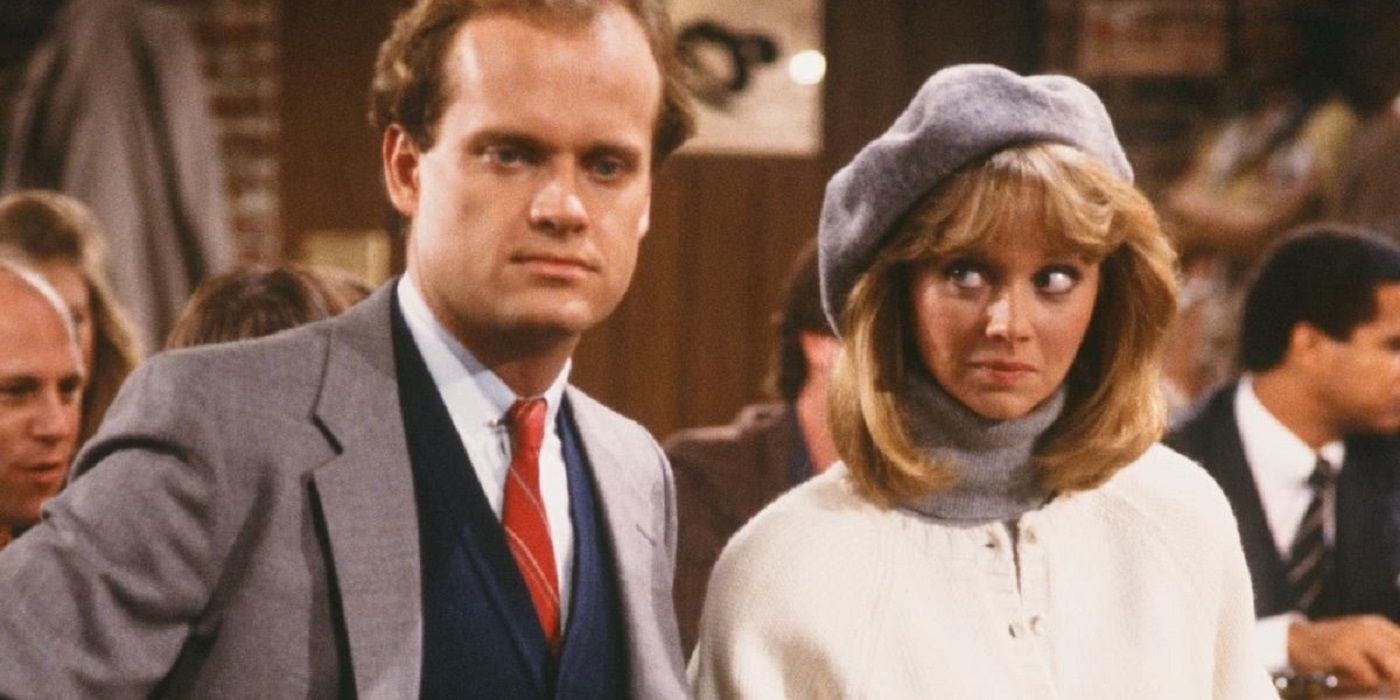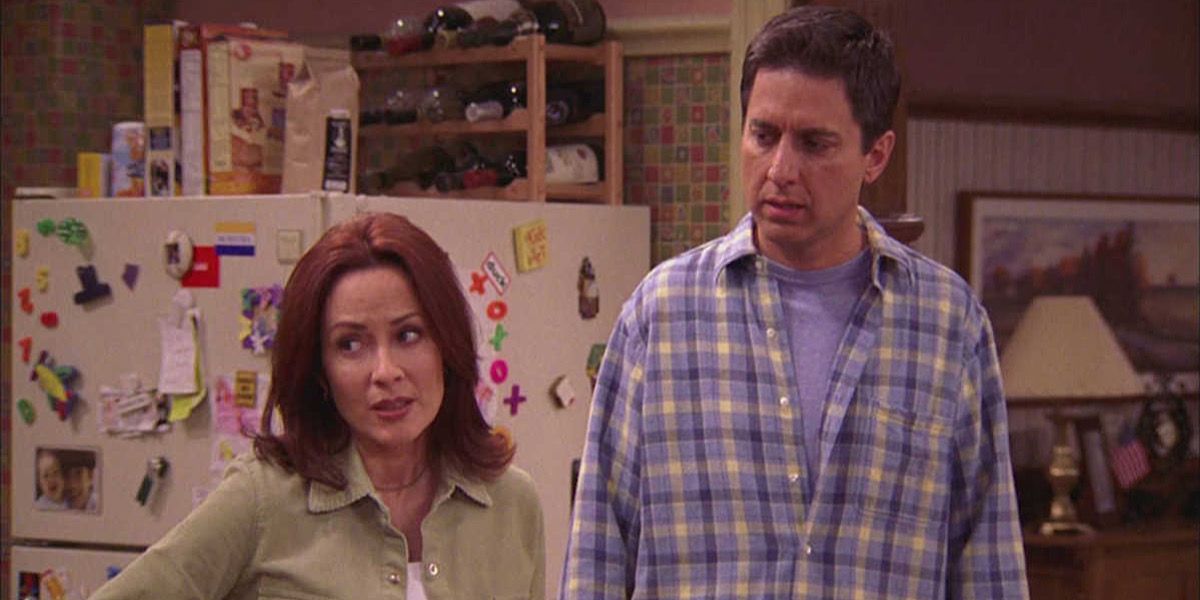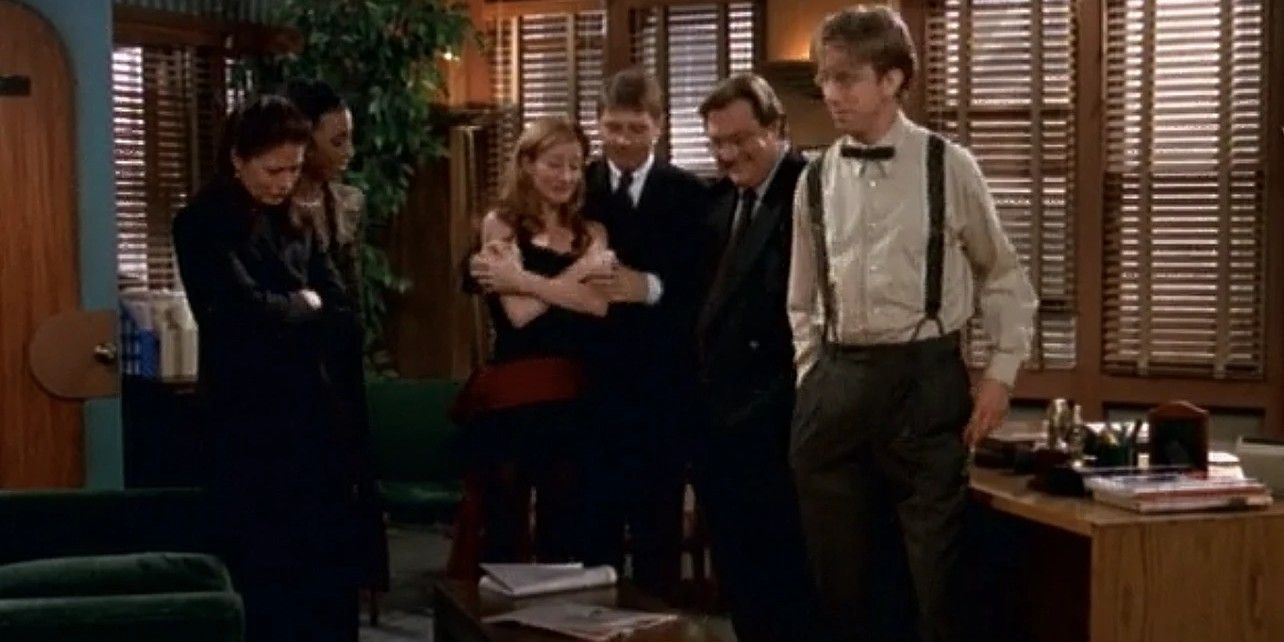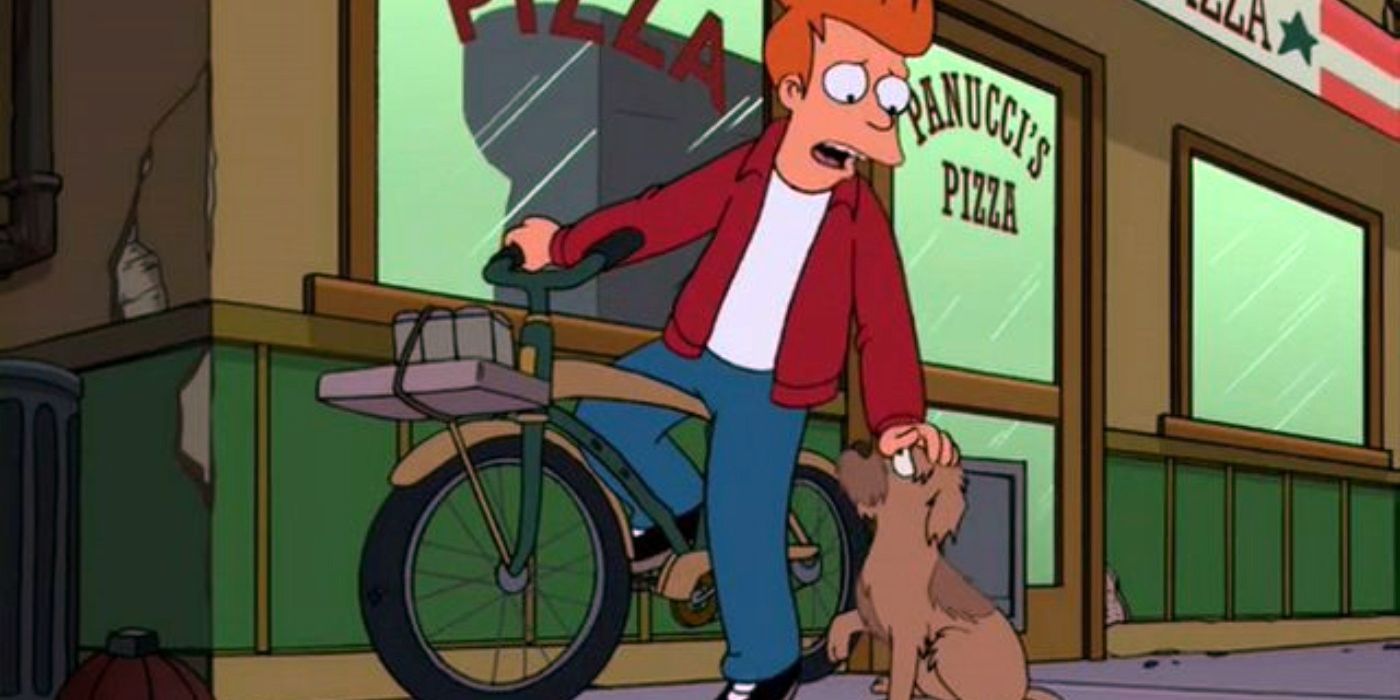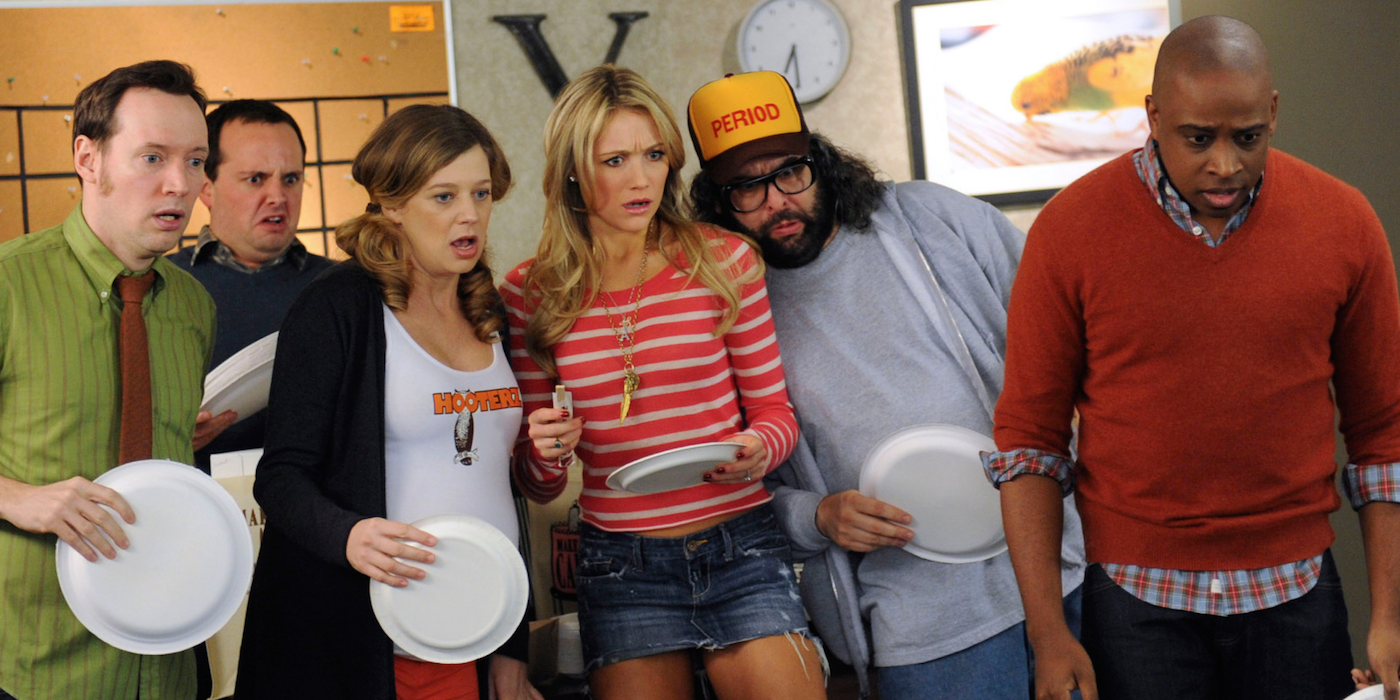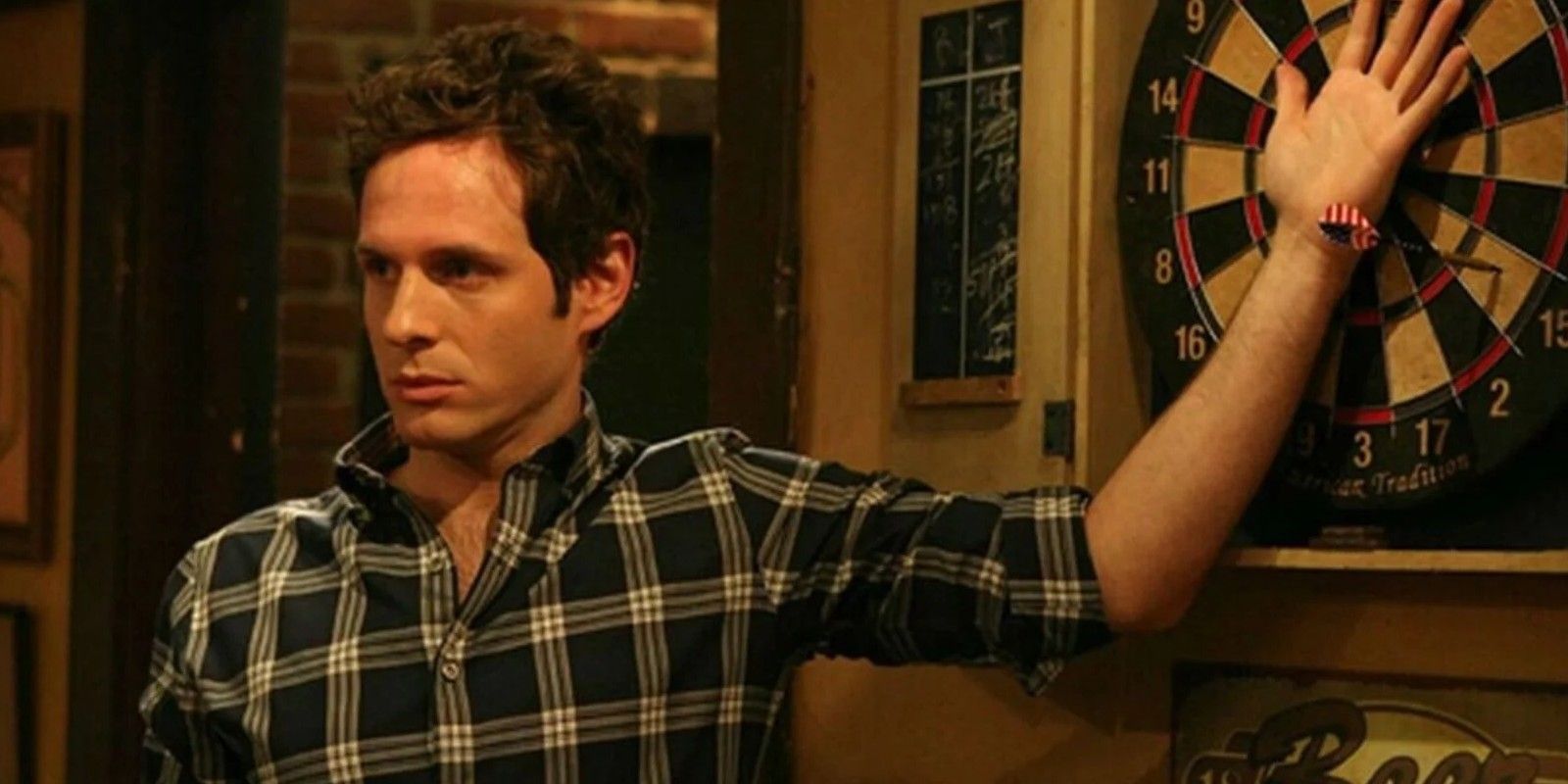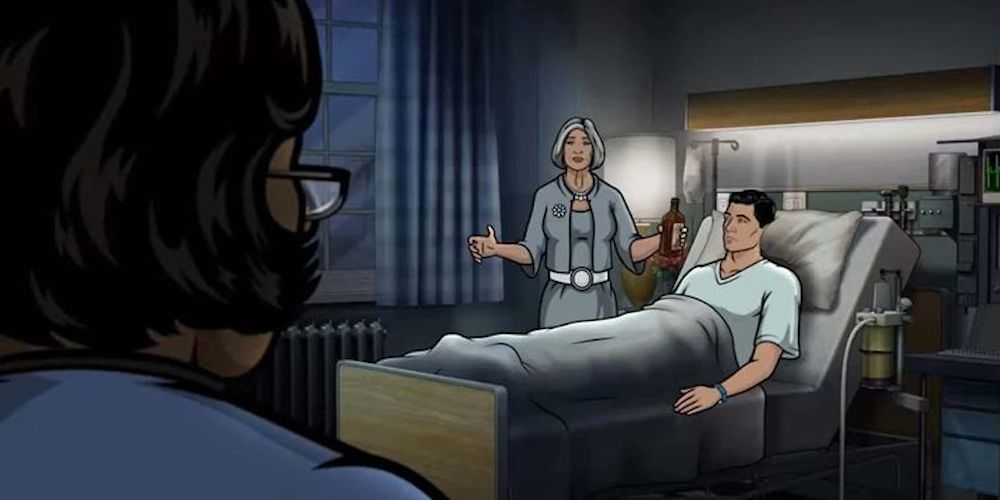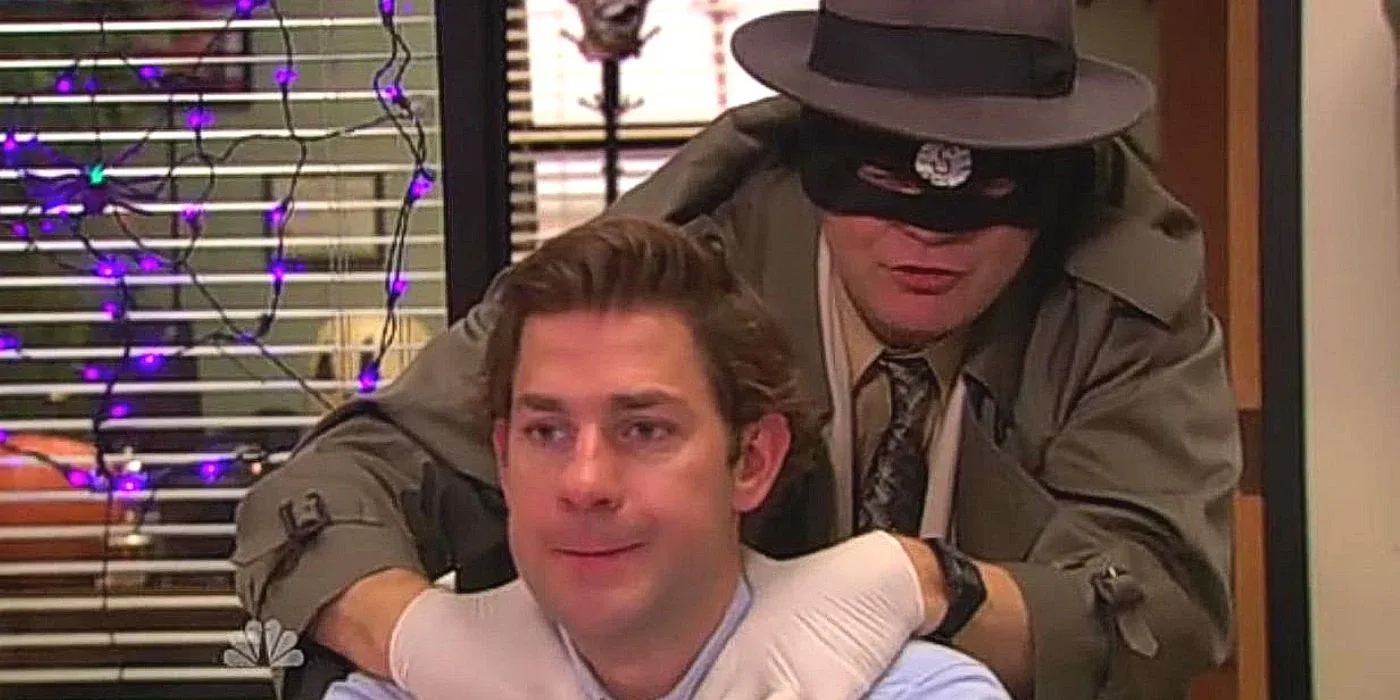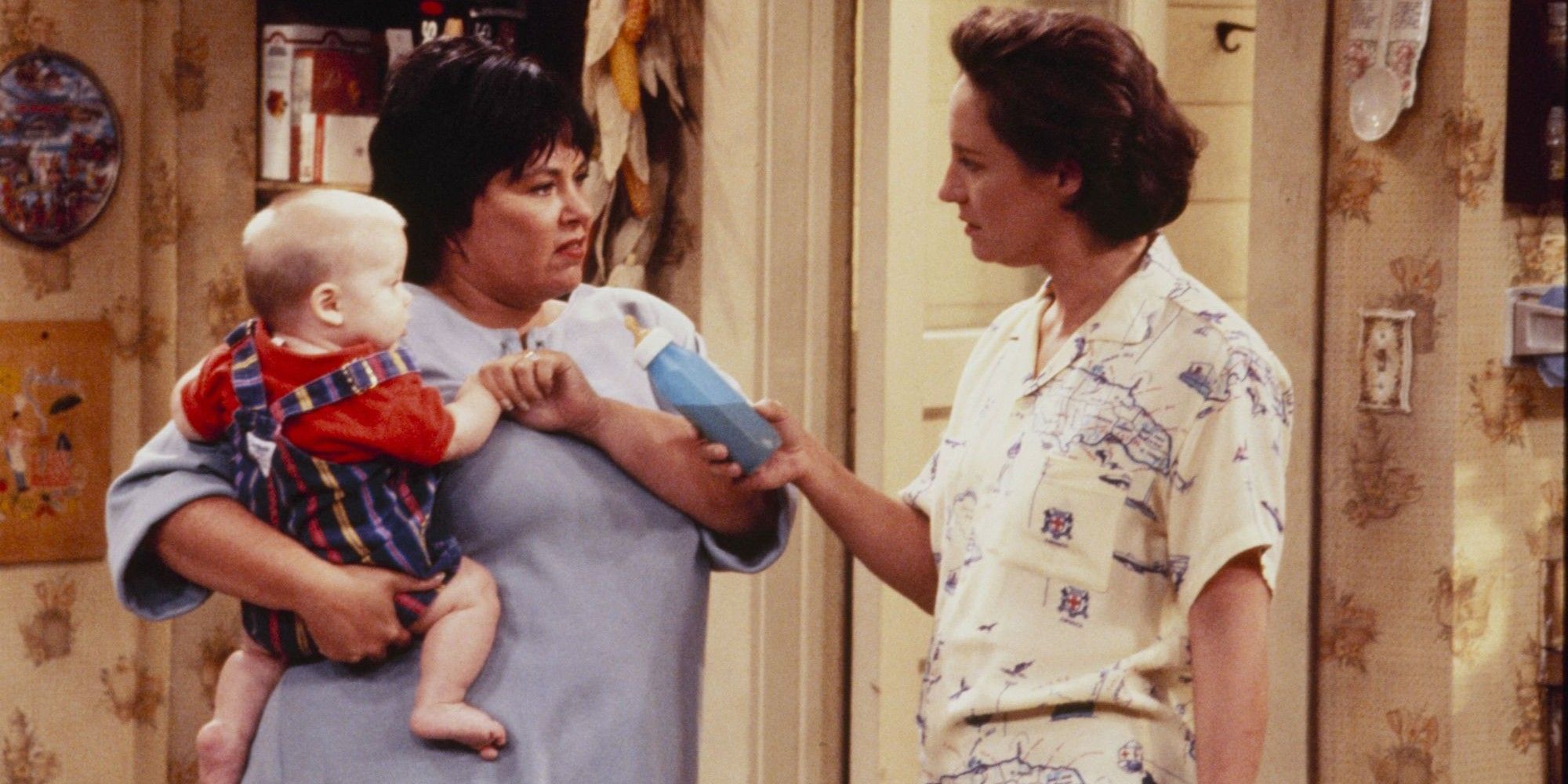Dramatic television frequently receives more attention and accolades than its comedic counterparts, but it’s hard to deny the soothing comfort comedies and sitcoms provide their audience.
Viewers tune into comedies because they want to laugh and experience absurdist scenarios, but plenty of dark jokes emerge from unexpected places. It’s easy for comedy series to hide behind breezy, playful exteriors, only to contain a much more sinister energy and storylines.
10 Seinfeld Has A Strange Obsession With Death For A Network Comedy
Seinfeld made a name for itself through its mundane “stories about nothing” and a cast of selfish, egotistical characters who openly mocked the idea of character growth and life lessons. This bitter energy is consistent throughout the series’ run, but it’s easy to forget just how much death is present within the series.
Most notably, the storyline of George’s impending marriage is ended through the death of his fiancée, yet multiple storylines revolve around New York City’s serial killers. The comedy’s final episode even forces the characters to confront a decade of misgivings before being incarcerated for their selfishness.
9 Cheers Pushes Its Characters To The Brink
Cheers is a true feat of television that produced close to 275 episodes over 11 seasons that arguably didn’t show any signs of compromise, despite several significant cast changes and departures throughout the sitcom’s run. Of course, there’s bound to be some inevitable free-floating sadness in any series that’s primarily set in a bar where characters drown out their sorrows in liquor. Still, Cheers frequently fights off these darker tendencies with its lovable cast of unusual characters.
That being said, Frasier Crane is a character who gets left at the altar and publicly contemplates suicide after his life crashes down around him.
8 Everybody Loves Raymond Features Truly Toxic Behavior That Masquerades As Quirky Comedy
Everybody Loves Raymond was a CBS staple during the 2000s that reinforced the standard sitcom stereotypes where a bumbling husband is practically held hostage by their wife's nagging, explosive whims. Ray also has to contend with a jealous brother and intrusive parents who live next door.
This dysfunctional extended family is played for laughs, but the genuine disdain that seems to exist between Ray and Debra occasionally can be hard to watch. Ray repeatedly lies to his wife if it means she’ll get off his back and be more forthcoming in the bedroom. It’s a very toxic dynamic.
7 NewsRadio Confronts Death In One Of The Saddest Sitcom Experiences
NewsRadio struggled to find an audience and love from its network during its five-season run on NBC in the 1990s. However, the show holds up incredibly well, and it’s a remarkable workplace comedy with one of the best comedy casts to come out of the 90s that includes the likes of Phil Hartman, Dave Foley, and Stephen Root.
The characters in NewsRadio harbor drinking problems, addictions, and realistic flaws that were atypical for most 1990s sitcoms. NewsRadio directly addresses this sadness with its fifth season premiere, which is ostensibly an on-air eulogy for cast member Phil Hartman. It’s one of the most raw and painful episodes of a sitcom.
6 Futurama Isn’t Afraid To Dwell On Death, Loss, And Personal Failure
Futurama never found the same universal appeal as The Simpsons, but with its third renewal right around the corner, this time on Hulu, it’s clear that there’s still a very dedicated audience for this animated sci-fi comedy series. Admittedly, many of Futurama’s apocalyptic proclamations are flippantly brushed off and not dwelled upon for entire episodes.
Futurama turns to tear-jerking tragedy more than it’s outright evil, but the surprisingly deep places that Fry is pushed throughout the show are dark and sobering in their own ways.
5 30 Rock’s Fast-Paced Comedy Buries A Mountain Of Disturbing Gags
30 Rock engages in mile-a-minute comedy that occasionally shows its heart. Still, it’s such a wild, sarcastic series that feels like it intentionally keeps itself at a distance from the audience for the sake of gags. This results in some surprisingly dark one-liners that the series breezes past too quickly to properly process.
Many of these jokes come from Jenna’s extremely full life, where murder, felonies, and psychological destruction are par for the course. This palpable darkness that brews under the surface becomes even more pronounced in Tina Fey and Robert Carlock’s follow-up comedy, The Unbreakable Kimmy Schmidt, which eventually turns Robert Durst into a supporting character.
4 It’s Always Sunny In Philadelphia Has Ruined Lives And Features A Genuine Psychopath
It’s Always Sunny mines its humor out of the idiocy and delusion of its central characters, which frequently opens itself up to controversial comedy. It’s Always Sunny has never pretended to be a warm comedy with characters to emulate, but it’s often even darker than it lets on.
It’s easy to laugh at Dennis Reynolds’ obsessive and controlling tendencies, but the concept of The D.E.N.N.I.S. System is the stuff of nightmares, as is the fact that he’s almost certainly taken lives. The whole devolution of Rickety Cricket from preacher to mal-formed dog reject is disturbing enough on its own.
3 Archer’s Emotionally Distant Characters Have Been Put In Life-Threatening Scenarios For Years
Archer started as a quirky animated spy series, and while it’s returned to its espionage roots, it’s also gone through several compelling identity crises throughout its 13 seasons. Sterling Archer’s selfish attitude is a beacon for dark comedy, but there’s a lot to unpack in Archer beyond clever innuendo and pointed bullying.
Several gutting deaths take an emotional toll on Sterling, and the sheer fact that the series strands its main character in a coma for multiple seasons is exceedingly brave. These coma seasons turn into playful genre spoofs, but the audience is left in serious doubt over Archer’s condition.
2 The Office Brushes Up Against Murders And Other Dark Figures Who Are Hiding In Society
The Office is a modern American comedy classic that’s become a generation’s comfort food. The Office was able to find such success because of its appealing, realistic characters and the engaging will they/won’t they chemistry of icons like Jim and Pam. As a successful sitcom on a major broadcast network, The Office was limited in how often it could push boundaries or verge into genuinely dark territory.
That being said, one of the larger running jokes throughout the series is that a serial killer, the Scranton Strangler, is on the loose. The warm characters help the audience forget some of The Office’s darkest ideas.
1 Roseanne’s Earnest Look At Working Class Families Could Hit Harsh Nerves
Roseanne turned into a contentious comedy series during its 2018 return, but the sitcom’s original nine seasons are iconic television in terms of realistically shining a light on the dynamics of lower-middle-class American families. This honest look into family is full of character-driven humor, but Roseanne and Dan experience their share of arguments throughout the series that aren’t afraid to visit dark places.
The outlandish tone present in season nine is later revealed to be Roseanne’s fictional novel that she’s been writing to cope with Dan’s death. The execution is broad but born out of a tragic idea.

